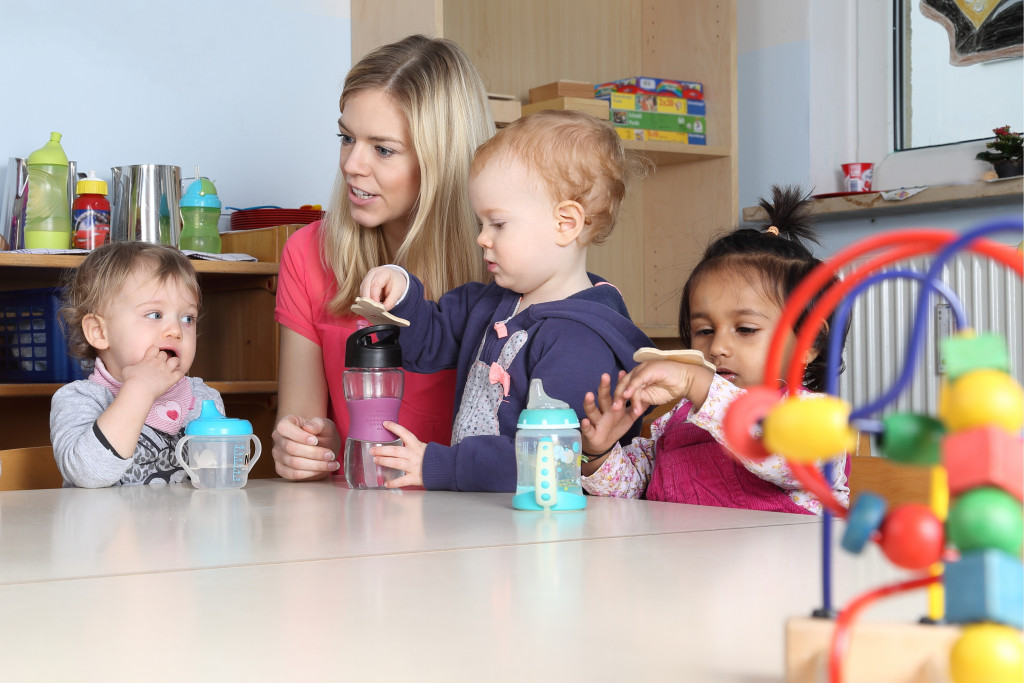- Creative approaches to education can make learning fun for children through hands-on activities, game-based learning, and project-based learning.
- Experiential learning encourages children to explore, experiment, and think outside the box while teaching important skills such as problem-solving.
- Game-based instruction allows students to engage and pursue their interests at their own pace actively.
- Project-based activities help foster critical thinking, self-directedness, creativity, as well as collaboration in students.
- Daycare services provide a safe environment for children to gain independence while developing physical, social, emotional, and cognitive skills.
Learning through play is an increasingly popular concept for helping children better understand the world around them. As educators and parents, providing children with creative approaches to education is vital in ensuring they are curious lifelong learners. Though this can sometimes seem overwhelming, there are various ways to set up fun learning environments for children where the traditional “sit down and study” approach isn’t necessary.
From outdoor scavenger hunts and educational field trips to at-home activities like building project-based books, crafting games, or exploring cultural celebrations—making learning fun has never been easier! This article will explore some of the best ways to make education engaging and look into tips, innovative ideas, and strategies!
Creative Approaches to Education
Creative approaches to education are a great way to make learning fun and engaging for children. By using innovative tools, parents and educators can find new, exciting ways to help children understand concepts and develop essential skills. With the right approach, children will enjoy their learning experience and likely retain the knowledge gained.
Experiential Learning
Experiential learning is an effective way to foster creativity and development in children. It encourages kids to explore, experiment, and think outside the box while having fun. By combining theory with practice, children can understand their environment and the materials they interact with while also learning important skills such as problem-solving.
Through hands-on activities that engage senses, motor control, and critical thinking, experiential learning helps foster valuable intellect, empathy, and communication skills essential for a successful future.
Game-based Learning
Game-based learning is a current trend in the field of education. It involves building learning activities around video or computer games designed to provide students with an engaging and rewarding experience. With proper guidance, game-based learning can create an educational environment that fosters creative and innovative thinking.
This method encourages active participation from students, allowing them to explore their interests at their own pace. In addition, game-based learning will enable parents and educators to measure the outcomes of the activities more efficiently since quantitative data is available from the games.
All in all, it’s clear why game-based learning has become such an attractive option for those interested in children’s education—it encourages both creativity and measurable results in a fun and engaging way.
Project-based Learning
Project-based learning is a powerful tool to engage children in their learning. It fosters the development of skills such as critical thinking, self-directedness, creativity, and collaboration.
This approach encourages students to take ownership of their learning and drive their educational experience by establishing individual goals and collaborating with others.
By integrating themes, real-world experiences, and technology throughout the project design and culminating activities, project-based learning offers a comprehensive educational opportunity that conventional methods often cannot match.
Technology-based Learning
Technology-based learning is becoming an increasingly popular option for introducing children to education. With the rise of mobile devices, interactive programs, and online activities, tech-savvy kids can explore various stimulating learning experiences.
Digital tools and apps for teaching elementary schoolers provide engaging content and foster a greater understanding of concepts through games and quiz modules. Moreover, these activities have proven effective in promoting improved skills like literacy and problem-solving.
Technology-based learning enables parents, educators, and anyone interested in furthering a child’s educational development to discover exciting new avenues for making learning fun.

Benefits of Creative Approaches to Education
Creative approaches to education provide multiple benefits for children. They can develop critical thinking and problem-solving skills by utilizing hands-on activities and allowing kids to explore their learning through self-directed projects.
With the help of parents and educators willing to take a hands-off approach, children can push themselves to think outside of the box, propelling them toward academic success in the long run.
Additionally, creative approaches equip them with essential public speaking, researching, and group work skills that build on their social-emotional development.
Adopting a creative approach to education makes learning fun for everyone involved while developing valuable skills that prepare kids for future success.

Daycare Services for Children
Daycare services provide a safe and nurturing environment for children to learn and grow. With daycare staff who are educated and experienced in child development, daycare facilities offer an opportunity to aid young minds’ physical, social, emotional, and cognitive development.
Daycare gives children opportunities to explore the world around them with peers and mentors and accumulate new knowledge from day-to-day explorations. It also provides an excellent structured environment for developing confidence, problem-solving skills, and essential life lessons that can’t be learned elsewhere.
Finally, daycare services help children gain independence—something that will be incredibly beneficial down the road.
Thus, daycare services are essential for helping support in providing guidance surrounding the creative and innovative approaches to education being discussed within these workflow sessions.

Creative approaches to education can provide children with a richer, more meaningful learning experience beyond traditional methods. While providing the right learning environment is important, educators should also ensure daycare services play a role in fulfilling their educational mission.
Daycare services provide stability and consistency in a learning environment while allowing them to develop social skills, communication, and understanding through peer interaction. All this contributes to young learners’ overall growth and development, which is an integral part of their education.
Creative approaches to education inspire children to have fun while also allowing them to learn something new, which can help them become well-rounded individuals. Creativity helps children shape the world around them using their unique perspectives, which can benefit them in the long run.


